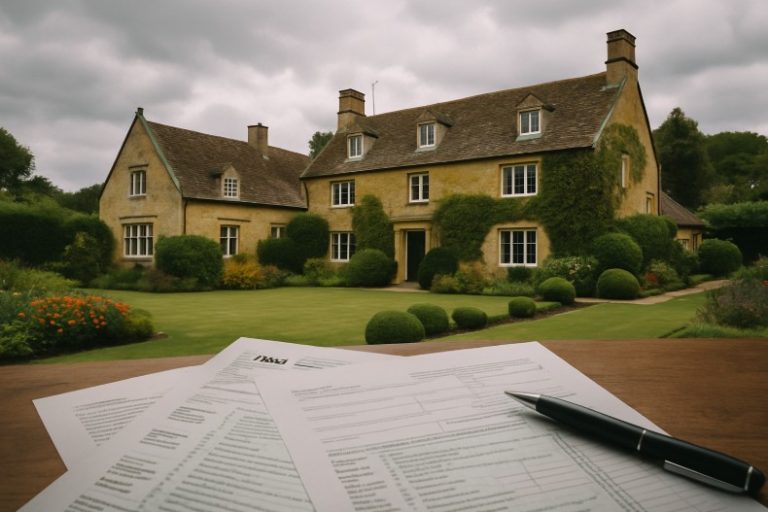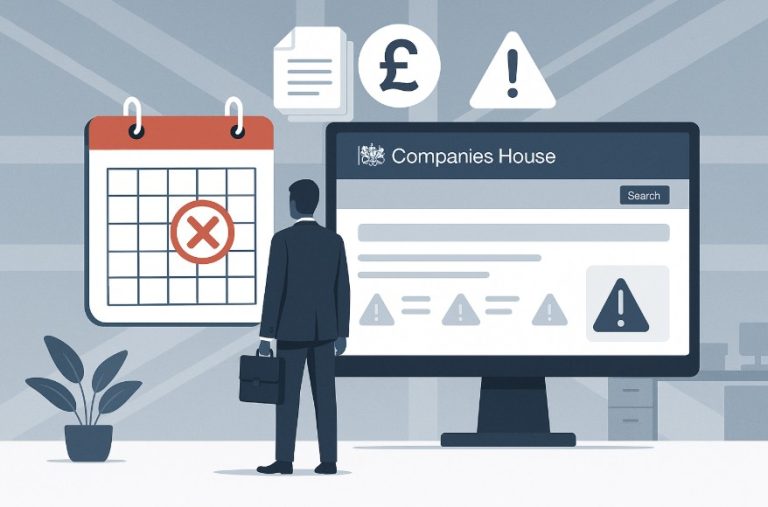In the complex and ever-evolving UK property market, professionals with specialist knowledge are essential to ensure transparency, legal compliance, and accurate valuations.
One such professional is the chartered surveyor. But what does a chartered surveyor do, and why is their role so vital for residential and commercial property stakeholders?
What is a Chartered Surveyor?

A chartered surveyor is a trained professional who provides expert advice on property, land, and construction matters. In the UK, they must be accredited by the Royal Institution of Chartered Surveyors (RICS), which is the leading regulatory body for property professionals. RICS ensures that surveyors operate according to strict professional standards, ethics, and legal compliance.
To become chartered, an individual must complete a RICS-accredited academic programme followed by the Assessment of Professional Competence (APC).
This process guarantees that the surveyor is competent to carry out detailed evaluations, valuations, and guidance across various sectors, including residential, commercial, and rural property markets.
Chartered surveyors often work across a wide range of services, from advising on buying and selling properties to managing construction projects and resolving legal issues related to land ownership.
What Are the Main Responsibilities of a Chartered Surveyor?
The responsibilities of a chartered surveyor vary depending on the type of property and client involved. They are often hired to assess properties for value, structural integrity, or suitability for specific uses. Their services are typically categorised into:
- Valuation and appraisal of residential and commercial properties
- Surveying buildings for defects, deterioration, or risks
- Advising on planning permission, regulations, and environmental impact
- Managing property development and refurbishment projects
- Preparing legal documentation such as lease agreements and boundary assessments
They also liaise with architects, engineers, legal professionals, and local authorities to ensure a project’s viability and legality.
How Do Chartered Surveyors Impact the UK Property Market?
Chartered surveyors play a fundamental role in maintaining transparency, stability, and efficiency in the UK property market. Their independent valuations help establish realistic property prices that reflect current market conditions. This benefits buyers, sellers, and investors by setting accurate expectations and avoiding overvaluations or undervaluations.
Their inspections also prevent costly surprises after a transaction. For example, identifying structural issues or legal complications can significantly influence a property’s saleability and long-term value.
Additionally, surveyors provide data that influences national property indices, lending policies, and investment trends. Without their input, the market would lack a standardised, regulated process for property evaluation and due diligence.
What Types of Chartered Surveyors Operate in the UK?

There are various types of chartered surveyors in the UK, each with specialised roles. Some of the most common include:
| Type of Surveyor | Area of Specialism |
| Residential Property Surveyor | Conducts homebuyer reports and valuations |
| Building Surveyor | Inspects property condition and construction quality |
| Quantity Surveyor | Manages construction budgets and costs |
| Land Surveyor | Measures land for ownership, development, and planning |
| Valuation Surveyor | Provides property value assessments for sales, insurance, and mortgages |
Each specialism contributes to the overall health and reliability of the property market. For example, land surveyors assist with accurate mapping, while quantity surveyors are integral to keeping large-scale construction projects within budget.
What Services Do Chartered Surveyors Provide to Homebuyers?
Homebuyers in the UK rely on chartered surveyors to make informed decisions before purchasing a property. These professionals help assess the condition, value, and risks associated with a residential building. Some of the core services include:
- Homebuyer Report: A standard mid-level inspection that identifies visible defects and urgent issues in conventional properties.
- Building Survey: A more detailed evaluation of older or altered homes. This report includes structural concerns, potential repairs, and long-term maintenance advice.
- Valuation Report: A straightforward assessment of the property’s market value, often required for mortgage approval.
These services are particularly crucial in the UK due to the wide range of property types, from historical cottages to newly built flats. A detailed inspection helps prevent unexpected repair costs and ensures the buyer knows exactly what they are purchasing.
How Do Chartered Surveyors Support Commercial Property Clients?
Commercial clients hire chartered surveyors for a variety of strategic and operational purposes. These can range from initial property acquisition and due diligence to long-term asset management. Key commercial services include:
- Valuations for investment, sale, or lease
- Building condition surveys prior to purchase or occupation
- Advice on development opportunities and property conversions
- Lease advisory services, including rent reviews and renewals
- Project management for new builds or refurbishments
Their input is particularly important for compliance with building regulations, planning requirements, and environmental policies. Surveyors also assist with financial modelling and return-on-investment analysis for commercial portfolios.
What Is the Difference Between a Chartered Surveyor and a Building Surveyor?

While both professions operate within the same property and construction ecosystem, there are important distinctions between them. Understanding these differences helps property owners, developers, and investors choose the right professional for their specific needs.
Scope and Areas of Expertise
A chartered surveyor is a broad professional title covering multiple disciplines such as valuation, land surveying, quantity surveying, and building assessment.
Their training enables them to work across both residential and commercial sectors, offering expertise that includes valuation, planning advice, and project management.
A building surveyor, by contrast, specialises primarily in the structural and physical condition of buildings. Their expertise lies in identifying defects, assessing construction quality, and recommending repairs or improvements.
Building surveyors are particularly valuable when dealing with older or non-standard buildings that require close inspection.
| Criteria | Chartered Surveyor | Building Surveyor |
| Professional Accreditation | Must be RICS qualified | May be RICS qualified or hold equivalent certification |
| Scope of Work | Broad: valuation, land, planning, legal, and building aspects | Focused: structure, defects, materials, and maintenance |
| Typical Clients | Homebuyers, investors, developers, and corporations | Homeowners, contractors, and property managers |
| Key Deliverables | Valuation reports, lease reviews, project management | Building condition surveys, repair recommendations |
| Industries Served | Residential, commercial, agricultural, and industrial | Residential and construction-focused |
When to Hire a Chartered Surveyor?
Chartered surveyors are most useful when property transactions involve legal, financial, or investment decisions. They are often engaged for:
- Valuation and market analysis
- Lease and rent review negotiations
- Land development feasibility reports
- Investment and taxation guidance
They are the right choice when the project extends beyond simple property inspection and requires broader regulatory or financial advice.
When to Hire a Building Surveyor?
A building surveyor is ideal for property owners or buyers who need an in-depth understanding of a building’s physical condition. They are often called upon for:
- Full building surveys before purchase
- Structural defect investigations
- Guidance on restoration or refurbishment projects
- Maintenance and safety compliance inspections
Building surveyors are crucial when a property’s physical integrity or compliance is the main concern, rather than its market value or legal standing.
Overlap Between the Two Roles
Although their functions differ, there is often collaboration between both professionals. For example, in a property development project, a chartered surveyor might assess the site value and negotiate planning permissions, while a building surveyor ensures that construction adheres to regulations and safety standards.
This overlap ensures a comprehensive approach to property management and development, covering both structural and financial aspects of real estate.
How Much Does It Cost to Hire a Chartered Surveyor in the UK?
Costs for hiring a chartered surveyor can vary widely depending on the type of service, property size, location, and the complexity of the task. For instance, a simple valuation for a mortgage will cost significantly less than a full structural survey on a listed building.
Here’s an overview of typical fees:
| Survey Type | Price Range (GBP) | Description |
| Valuation Report | £150 – £300 | Basic value assessment for mortgage or insurance use |
| Homebuyer Report | £400 – £700 | Mid-level inspection for standard properties |
| Building Survey | £600 – £1,500+ | Detailed structural report for older buildings |
| Commercial Survey | From £1,000 upwards | Tailored for offices, warehouses, retail units |
Most surveyors provide fixed-fee quotes or tiered pricing depending on the services bundled. It is important to compare a few options and verify if the surveyor is RICS-accredited before proceeding.
When Should Someone Hire a Chartered Surveyor?
Chartered surveyors offer value in a wide range of scenarios. They are not only involved in buying or selling property but also in many stages of property ownership and development. Situations where their expertise is most beneficial include:
- Before purchasing a home or investment property
- When planning major renovations or extensions
- During lease negotiations or rent reviews
- To resolve disputes over land, ownership, or building defects
- For insurance claims or valuation updates
Hiring a chartered surveyor at the right time can prevent financial losses, legal conflicts, and project delays.
How Can a Chartered Surveyor Help with Legal and Planning Issues?
Chartered surveyors play a pivotal role in navigating the UK’s complex property laws and planning systems. Their training and RICS accreditation enable them to bridge the gap between technical surveying and legal compliance.
Planning Permission and Development Guidance
One of the key responsibilities of chartered surveyors is advising clients on planning permissions and development regulations. They work closely with local authorities and planning consultants to ensure proposals comply with national and regional planning frameworks.
Their services in this area include:
- Preparing and submitting planning applications
- Assessing the feasibility of proposed developments
- Advising on zoning restrictions, building use, and environmental compliance
- Liaising with architects and engineers to ensure designs meet planning standards
This level of guidance helps developers and investors avoid costly rejections or delays in the planning process.
Boundary and Land Ownership Disputes
Boundary disputes are a common issue in the UK property market, particularly in densely developed areas. Chartered surveyors use precise land measurements and title plan analysis to establish clear boundaries and ownership limits.
Their role often includes:
- Interpreting legal title documents and land registry maps
- Conducting on-site boundary surveys
- Acting as expert witnesses in court or arbitration
- Recommending solutions for shared access or encroachment issues
By providing impartial, evidence-based reports, chartered surveyors can help resolve conflicts efficiently and legally.
Party Wall and Neighbouring Property Matters
Under the Party Wall etc. Act 1996, property owners must follow specific procedures when carrying out work that affects shared walls or boundaries. Chartered surveyors are qualified to act as party wall surveyors, ensuring both parties’ rights are protected.
They prepare and serve official notices, carry out condition assessments before and after construction, and create party wall awards that define the responsibilities of each owner. This service reduces the risk of disputes and ensures legal compliance throughout the project.
Building Regulations and Compliance
Chartered surveyors are also knowledgeable about UK building regulations, which set the standards for design, construction, and energy performance. Their legal support in this area includes:
- Ensuring construction meets safety and energy efficiency standards
- Advising on materials and methods that comply with the Building Regulations 2010
- Monitoring building projects to ensure ongoing regulatory compliance
- Assisting developers with certification and documentation for completion
Compliance with these regulations protects both property owners and occupiers from potential fines, legal claims, or safety hazards.
Acting as Expert Witnesses in Legal Proceedings
In disputes related to property boundaries, valuations, or construction defects, chartered surveyors often serve as expert witnesses. Their testimony carries significant weight in courts and tribunals due to their RICS accreditation and technical expertise.
They prepare detailed written reports, provide independent opinions, and appear in hearings to present factual evidence. This role is crucial in helping courts make informed decisions in property-related cases.
Collaboration with Legal and Planning Professionals
Chartered surveyors often work alongside solicitors, architects, and planning consultants to provide comprehensive property advice. Their collaboration ensures that all technical, legal, and procedural aspects of a project align with current laws and standards.
A typical collaboration might involve:
| Professional | Role in the Process | Contribution from Chartered Surveyor |
| Solicitor | Manages contracts and legal documents | Provides accurate property measurements and valuations |
| Architect | Designs the structure and layout | Ensures the plans comply with planning and construction regulations |
| Planning Consultant | Advises on local authority approvals | Supplies reports, surveys, and feasibility studies for submission |
This integrated approach ensures that projects progress smoothly from planning to completion with minimal legal obstacles.
Why Is RICS Accreditation Important for Surveyors in the UK?
RICS accreditation is a mark of trust and competence in the surveying industry. It ensures that surveyors follow a code of conduct, keep their skills updated, and offer consumer protection.
Clients benefit from:
- Professional accountability with an independent complaints process
- High-quality service through regular audits and training
- Market insight based on global and local property standards
- Legal assurance that the surveyor is qualified and regulated
Choosing a RICS-accredited surveyor adds a layer of security and professionalism to any property transaction.
What Should You Look for When Choosing a Chartered Surveyor?
Selecting the right surveyor can have a major impact on the success of a property transaction or project. When hiring, it is important to consider:
- RICS membership and other credentials
- Relevant experience with the type of property involved
- Clear pricing and transparent reporting timelines
- Positive reviews or client references
- Specialisation in the required service (e.g., valuation, structural, commercial)
It is also advisable to check if they carry professional indemnity insurance, which protects you in case of errors or omissions in their advice or reports.
How Are Chartered Surveyors Adapting to Changes in the UK Property Market?

The property market is experiencing rapid change due to technology, sustainability goals, and economic factors. Chartered surveyors are adapting through:
- Using drones and 3D modelling tools for remote inspections
- Adopting property technology platforms for real-time reporting
- Offering sustainability assessments including EPC advice
- Providing insights into new property regulations and tax reforms
- Delivering hybrid services for both in-person and digital clients
These changes are helping surveyors offer more efficient, data-driven, and environmentally responsible services across the property sector.
Conclusion
Chartered surveyors play a vital role in maintaining the stability and integrity of the UK property market. From individual homebuyers to large-scale developers, they offer expert guidance, ensure compliance, and reduce risk.
With a strong foundation in regulation and professionalism through RICS, chartered surveyors remain trusted partners in property decisions.
FAQs About Chartered Surveyors in the UK
What does RICS stand for in property surveying?
RICS stands for the Royal Institution of Chartered Surveyors, a global professional body that accredits surveyors and ensures high industry standards.
Can a chartered surveyor help with planning applications?
Yes, many chartered surveyors assist clients with submitting planning applications and ensuring compliance with local authority requirements.
Do I need a chartered surveyor for a mortgage valuation?
Not necessarily. Lenders usually appoint their own valuation surveyor. However, it’s recommended to hire an independent chartered surveyor for a thorough homebuyer or building survey.
Is a Homebuyer Report enough for older properties?
For older or non-standard properties, a full Building Survey is often more appropriate due to its comprehensive nature.
What qualifications should a chartered surveyor have?
A chartered surveyor should have a RICS-accredited degree and pass the Assessment of Professional Competence (APC).
Can a chartered surveyor act as an expert witness in court?
Yes, RICS-accredited surveyors are often called upon to provide expert testimony in property disputes and legal matters.
How long does a property survey typically take?
Depending on the type and size of the property, surveys can take from 2 hours to a full day, with reports issued within 3–7 days.






